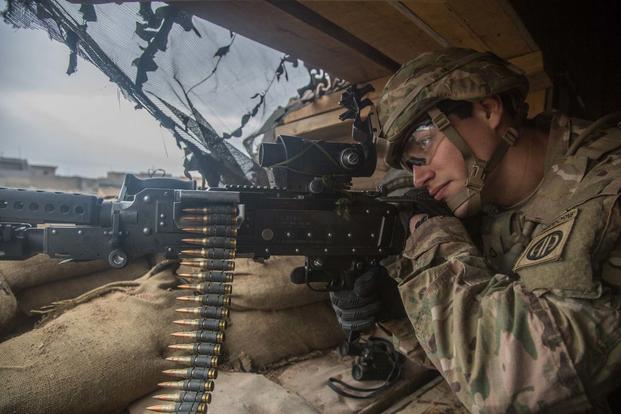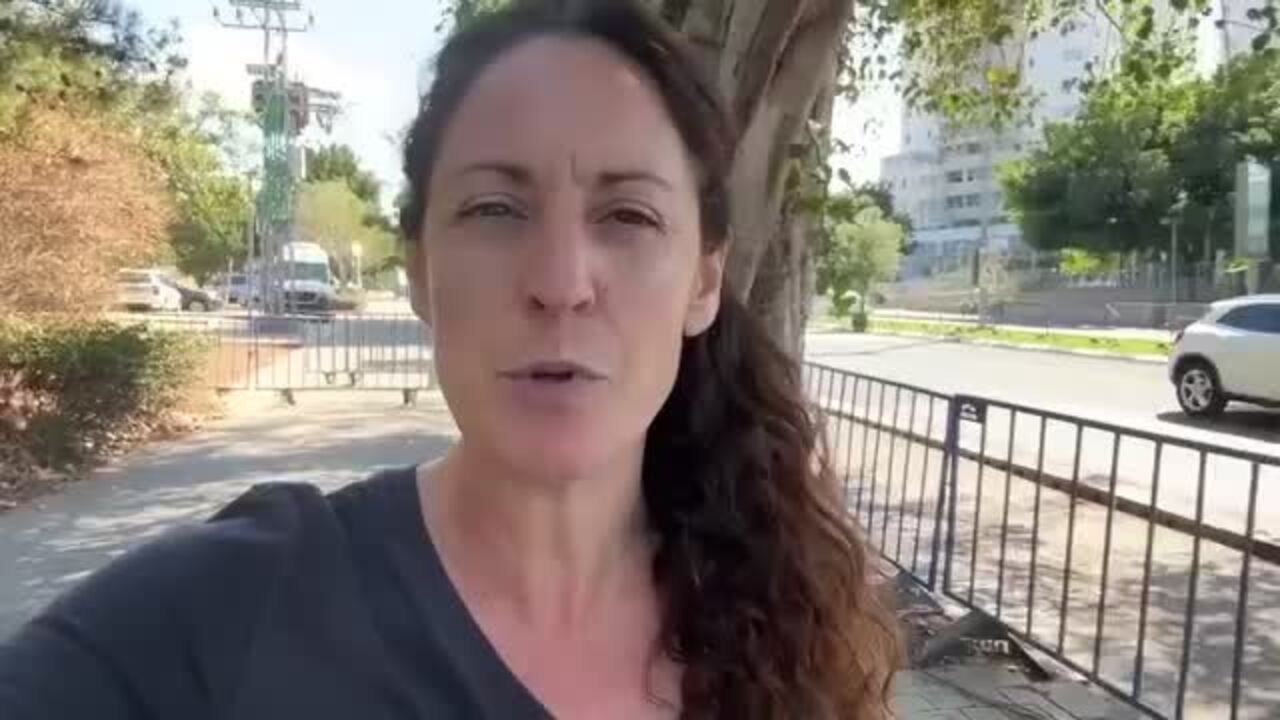U.S. troop increases in Syria and Iraq could be part of the plan for speeding up the campaign against ISIS that Defense Secretary Jim Mattis will present to the White House next week, military officials said Wednesday.
Army Gen. Joseph Votel, commander of U.S. Central Command, told reporters traveling with him in the Mideast, "It could be that we take on a larger burden ourselves" in supporting a combined Syrian Arab and Syrian Kurdish force closing on the ISIS stronghold of Raqqa, Syria. "That's an option."
It was less clear whether Mattis would consider a U.S. troop increase in Iraq.
Last week, during a visit by the new defense secretary to Iraq to assess the situation, Army Lt. Gen. Stephen Townsend, commander of Combined Joint Task Force-Operation Inherent Resolve, said, "I have all the authorities I need to prosecute our fight, and I am confident that if I were to need more that my leadership would provide those."
However, Air Force Col. John Dorrian, a task force spokesman, said in a video briefing Wednesday to the Pentagon, "I don't want to speculate on what we're going to ask for" in presentations to Mattis. "We've provided our input to General Votel" and that input is working its way through the chain of command."
He added, "We're awaiting decisions."
In his Senate confirmation hearing, Mattis spoke to the possibility of "accelerating" the campaign against the Islamic State of Iraq and Syria. On Jan. 27, President Donald Trump directed him to draw up a plan within 30 days.
Trump has spoken favorably on the creation of safe zones for refugees in Syria, which would potentially require major increases in the U.S. troop presence to police and protect them. The president renewed his support for safe zones at what was billed as a campaign rally in Florida last week, and said that the Gulf states would pay for them.
"We're going to have the Gulf states pay for those safe zones," Trump said. "They have nothing but money."
Mattis is prepared to submit the ISIS plan to Trump next week, Navy Capt. Jeff Davis, a Pentagon spokesman, said Tuesday. "It will address ISIS globally, and it is not just a DoD plan," he said. "We're charged with leading the development of the plan, but it absolutely calls upon the capabilities of other departments.
"We have been working diligently with our interagency partners to develop it with the intelligence community, our military commanders on the ground, the Joint Staff and our policy team here, and it represents the input of a number of other departments," Davis said.
On the ground in the Mideast, Votel told reporters, "I am very concerned about maintaining momentum" in the simultaneous campaigns to take Raqqa and liberate the western sector of Mosul in northwestern Iraq.
Currently, the U.S. has about 500 troops, mostly Special Forces, in Syria and more than 5,000 in Iraq in train, assist and advisory roles. In the coming fight for Raqqa, Votel said, "We want to bring the right capabilities forward."
"Not all of those are necessarily resident in the special operations community. If we need additional artillery or things like that, I want to be able to bring those forward to augment our operations," Votel said, according to The New York Times.
"We might bring potentially more of our assets to bear if we need to, as opposed to relying on our partners" under the umbrella group called the Syrian Democratic Forces, he said. "That's an option."
In his statements last week, Townsend said U.S. troops in advisory roles are moving closer to the front lines with the Iraqi Security Forces as the battle for Mosul intensifies. "It is true that we are operating closer and deeper into the Iraqi formation," he said. "We adjusted our posture during the east Mosul fight and embedded advisers a bit further down into the formation."
The result has been that U.S. troops serving as Joint Terminal Attack Controllers to guide airstrikes and in other advisory capacities have increasingly come under fire, Dorrian said in his briefing from Baghdad to the Pentagon.
"When someone is shooting at you, that is combat. Yes. That has happened," Dorrian said. "They have come under fire at different times, [and] they have returned fire at different times in and around Mosul."
There have been no recent reports of U.S. combat deaths in Iraq, and Dorrian declined to say whether any U.S. troops had been wounded in the fighting in and around Mosul.
He said the U.S. military in Iraq and Syria does not immediately report on the number of wounded troops, if any, to avoid giving intelligence to the enemy. Casualty figures would be compiled at a later date by the Defense Department, he said.
-- Richard Sisk can be reached at Richard.Sisk@Military.com.

























